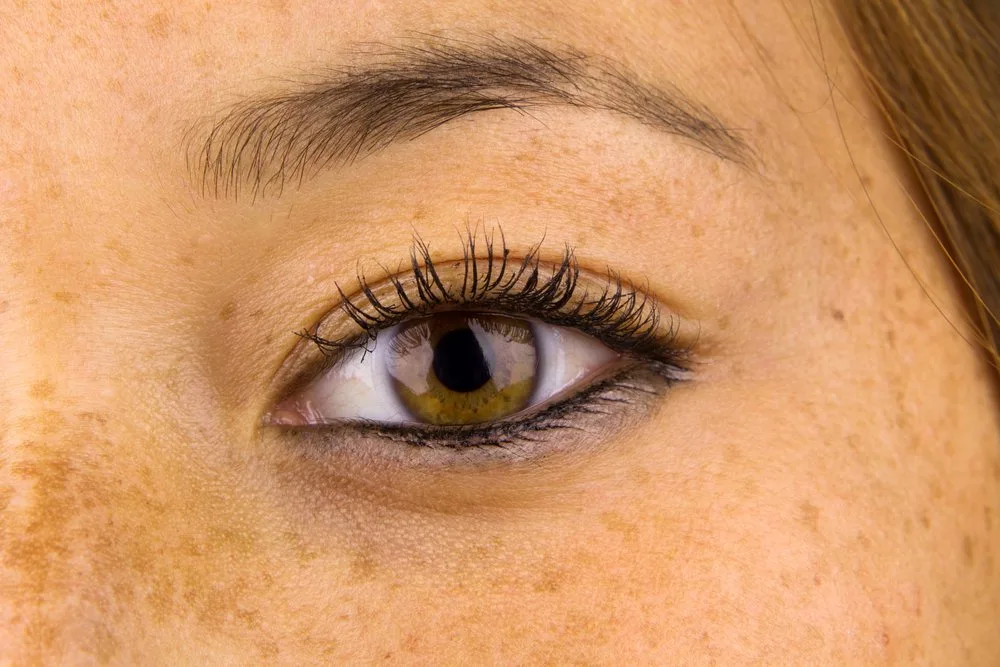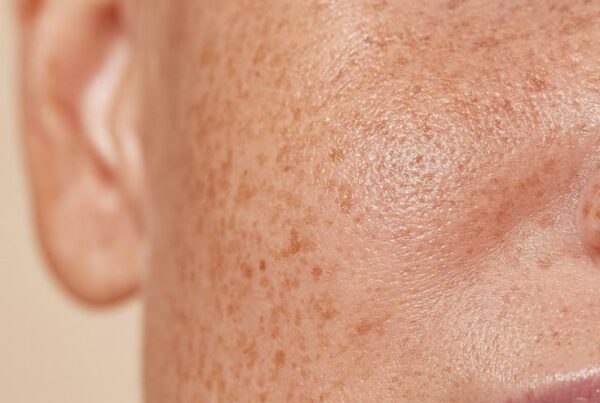Pigmentation, often considered a cosmetic concern, can significantly impact one’s confidence and overall well-being. With any skin condition, understanding that our skin is speaking to us to let us know that there is a deeper cause to surface skin reactions is key to rebalancing pigmentation.
Rebalancing Pigmentation
Pigmentation rebalancing is not just about treating topical symptoms, which in most cases won’t work long-term, but it’s about getting to understand the causes behind the surface condition is the key to true healing. Adopting a holistic approach to my own skincare routine was when my pigmentation (as well as my adult acne and rosacea) began to heal.
This journey isn’t a quick fix by any means, but what it does offer is new insights into how to hear what your skin is telling you. It also teaches you how to be more in touch with your own gut feelings and instincts. Busting, or rebalancing as I prefer to refer to it, is a matter of getting our skin pH back into balance. Once our pH (much like a swimming pool pH) is balanced, there is no space for any skin disruption.
A Holistic Approach to Pigmentation
I have become a skincare detective. When we conduct skin consultations with our clients, we go in-depth into how the holistic skin health journey works, and depending on each person’s input, how long it will take to heal.
FAST FACT
A typical beauty, personal care, or skincare product will contain anything from 15 to 50 ingredients. Considering that the average woman uses between 9 and 15 personal care products per day, researchers have estimated that, when combined with the addition of perfumes, women place around 515 individual chemicals on their skin each day through cosmetic use.
The Environmental Working Group Survey found that chemicals from the products used were ending up inside their bodies. These chemicals such as parabens and phthalates are hormone-altering, which can have negative effects on the function of the human body. This then presents through the skin via a skin condition like pigmentation, eczema, psoriasis, rosacea, and acne breakouts.
With this hard-hitting food for thought, let’s focus on some common causes of skin pigmentation and allow me to provide actionable tips to achieve optimal skin balance.
Common Causes of Pigmentation
- Pigmentation can stem from various factors, including exposure to:
- Harmful skin disrupting ingredients in sunscreens
- Harmful skin disrupting ingredients in skincare and beauty products
- Hormonal changes induced by contraceptive pills or life changes (menopause)
- Imbalanced pH levels due to chemically-laden personal care items
- Stress-induced skin reactions.
- The accumulation of harmful ingredients from makeup and foundation
- Poor gut health. An inadequate diet further exacerbates pigmentation issues
- The use of many skincare brands in your daily skincare routine
- Stress. Your mental and emotional health
My Recommendations for Rebalancing Skin
To effectively combat pigmentation, it is essential to adopt a mindful approach to skincare and makeup choices. Opting for a single skincare range that aligns with ethical standards and provides essential nutrients for skin rejuvenation is paramount. Additionally, transitioning to 100% natural makeup products minimizes exposure to harmful chemicals, fostering skin health.
My Ingredient Awareness Checklist
Empowering ourselves with knowledge about the ingredients present in skincare and cosmetic products is key and will be your ultimate game-changer. Conducting thorough ingredient checks and being mindful of potential adverse effects can prevent further damage to the skin.
With studies indicating the absorption of numerous ingredients by the skin daily, prioritizing ingredient transparency is vital for skin vitality and our overall health. Becoming our own skincare detective is crucial. Look for potential skin disrupting ingredients like: sodium lauryl sulphate, parabens, parfums, preservatives, colourants, and other binding agents.
My Holistic Approach to Skin Health
Beyond skincare routines, adopting a holistic (the whole body) approach encompasses attention to skin health and gut health, as well as our mental health is imperative.
Nurturing skin health goes beyond surface-level treatments; it entails fostering a balanced lifestyle that addresses internal and external factors contributing to pigmentation, like stress and how you are dealing with it, environmental stressors like cleaning agents and free radicals and most definitely our gut health (foods we’re consuming).
My Tips for Pigmentation Reversal
- Prioritize a single skincare range that aligns with ethical and nutritional standards.
- Transition to natural makeup products to minimize chemical skin disruption exposure.
- Conduct thorough ingredient checks on all skincare and cosmetic products.
- Embrace a holistic approach by focusing on skin, gut, and mental health.
- Ensure adequate rest, balanced diet, and stress management for optimal skin rejuvenation.
- Transition to natural sunscreens that use non-nano zinc oxide as the main sun protection ingredient.
Conclusion
Pigmentation is a multifaceted concern that necessitates a comprehensive approach for effective reversal and long-term skin health. By prioritizing ingredient transparency, embracing holistic well-being, and making informed skincare choices, individuals can embark on a transformative journey towards skin rebalancing and renewed confidence.



![women [longevity live]](https://longevitylive.com/wp-content/uploads/2020/01/photo-of-women-walking-down-the-street-1116984-100x100.jpg)










